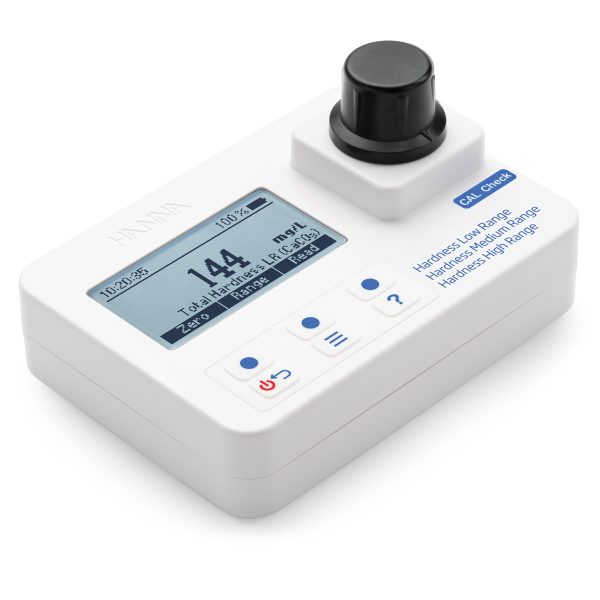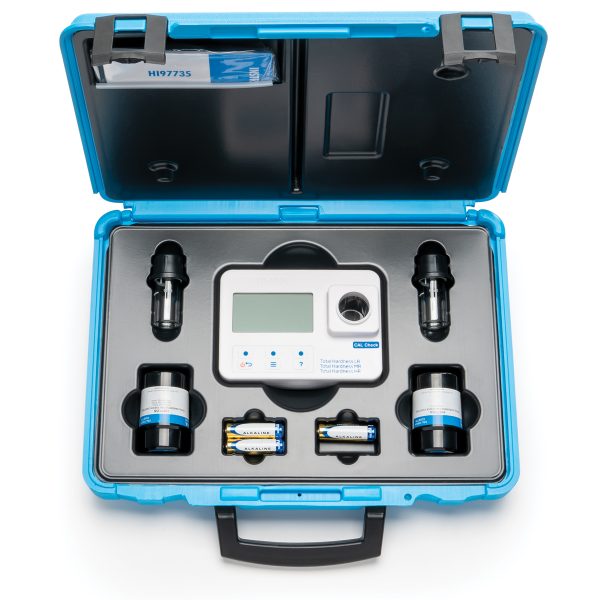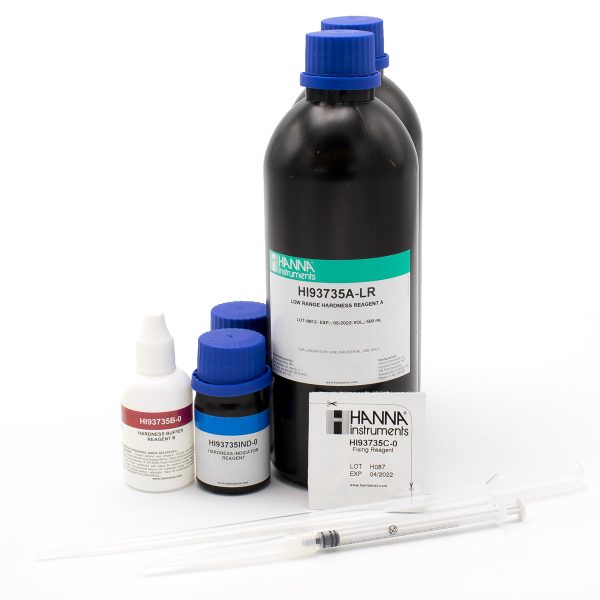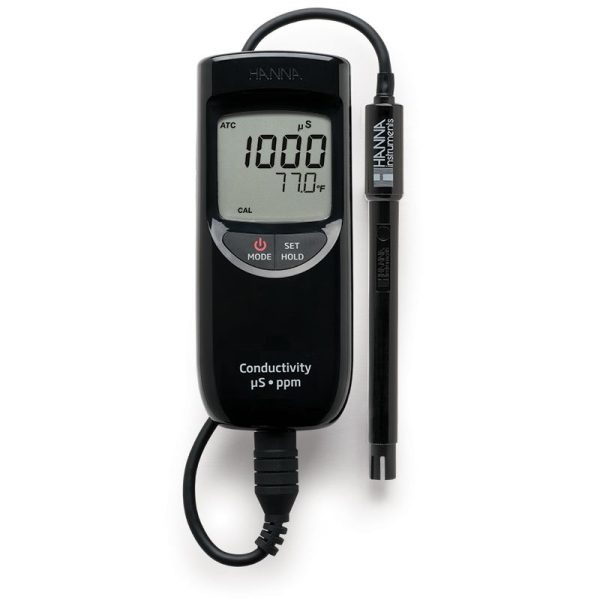Water quality is the most important key factor to run effective and sucessful car wash business.
Every car wash should result with a spot-free rinse to assure the customer satisfaction.
Not only that water quality of used water is affecting the quality of washing, but can have a significant impact on the lifespan of washing equipment and effectivness of chemicals.
There are several factors that can directly impact the quality of the wash:
- Water hardness
- Electrical Conductivity (EC) and Total dissolved solids (TDS)
- pH
Optimisation of car wash
By keeping your parameters in order you can:
– assure the customer satisfaction: – by delivering a spot-free result
– lower equipment maintenance cost – less scale build-up leads to longer equipment lifespan
– save money on chemicals – with increase in water quality increases the effectiveness of detergents and car wash chemicals

Water hardness is one of the most common & one of the most significant pointers of general water quality.
It should be commonly monitored in various applications to avoid costly breakdowns in car washes, boilers, cooling towers, swimming pools, and other equipment that handles water.
Wherever water hardness is a concern, water softening is commonly used to reduce the hard water’s adverse effects.
Hard water is water that has high mineral content (in contrast with “soft water”). Hard water is formed when water percolates through deposits of limestone, chalk or gypsum, which are largely made up of calcium and magnesium carbonates, bicarbonates and sulfates.
Hard water also forms deposits that clog plumbing. These deposits, called “scale”, are composed mainly of calcium carbonate (CaCO3), magnesium hydroxide (Mg(OH)2), and calcium sulfate (CaSO4).Calcium and magnesium carbonates tend to be deposited off-white solids on the inside surfaces of pipes and heat exchangers. The resulting build-up of scale restricts the flow of water in pipes.
In the following equilibrium reaction we can observe the dissolving and formation of calcium carbonate and calcium bicarbonate (on the right):
CaCO3 (s) + CO2 (aq) + H2O (l) ⇌ Ca2+ (aq) + 2 HCO−3 (aq)
Water Hardness is known to cause insoluble precipitate in water and it’s the main reason why your soap isn’t lathering so effectively.
Ions causing permanent hardness of water can be removed using a water softener, or ion-exchange column.
Classification | hardness in mg-CaCO3/L | hardness in mmol/L | hardness in dGH/°dH | hardness in ppm |
Soft | 0–60 | 0–0.60 | 0–3.37 | 0–60 |
Moderately hard | 61–120 | 0.61–1.20 | 3.38–6.74 | 61–120 |
Hard | 121–180 | 1.21–1.80 | 6.75–10.11 | 121–180 |
Very hard | ≥ 181 | ≥ 1.81 | ≥ 10.12 | ≥ 181 |
Many of the systems rely on reverse osmosis. Reverse osmosis can filter out impurities and assure spotless car washing.
But reverse osmosis filter can clog during the time and effectiveness could go down.
You can easily check the status of your filtration in several ways:
– Measuring EC
– Measuring TDS
– Measuring Total water hardness

How to measure water hardness?
There are several methods available, from fast checking test kits, photometers to titration systems.
Total Hardness Portable Photometer – HI97735
The HI97735 Total Hardness Photometer combines accuracy and ease of use in a simple, portable design. The advanced optical system provides lab-quality accuracy while its user-friendly design is easy for any user, making it the perfect photometer for your water quality testing needs. The HI97735 meter measures total hardness in water samples up to 750 mg/L (ppm) CaCO3.
- No warm up time needed before taking a measurement.
- Tutorial mode for easy step-by-step instructions.
- CAL Check for performance verification and calibration
- Easy navigation between chemical forms with a press-of- a-button:
- mg/L (ppm)
- French degrees (°f)
- German degrees (°dH)
- English degrees (°E)


It’s available in 2 versions HI97735 & HI97735C
Each HI97735 is delivered in a cardboard box and is supplied with:
- Sample cuvette (2 pcs.)
- Sample cuvette cap (2 pcs.)
- Plastic stopper (2 pcs.)
- 1.5V AA Alkaline batteries
- Instruction manual
- Meter quality certificate
Each HI97735C is delivered in a rugged carrying case and is supplied with:
- Sample cuvette (2 pcs.)
- Sample cuvette cap (2 pcs.)
- Plastic stopper (2 pcs.)
- HI97735A – CAL CheckCuvette A
- HI97735B – CAL Check Cuvette B
for Total Hardness LR, MR, HR
- Cloth for wiping cuvettes
- Scissors
- 1.5V AA Alkaline batteries
- Instruction manual
- Meter quality certificate
- CAL Check standard certificate


Reagents&ranges guidelines:
HI93735-00 (100 tests) LR – low range – 0 do 250 mg/L (ppm) CaCO₃; 0-14dH
HI93735-01 (100 tests) MR – middle range – 200 do 500 mg/L (ppm) CaCO₃; 11-28dH
HI93735-02 (100 tests) HR – high range – 400 do 750 mg/L (ppm) CaCO₃; 22-42 dH
*also available as full set HI97735-0 (LR+MR+HR)
Other ways include Todal hardness chemical test kits:
HI3812 Total Hardness Chemical Test Kit

The HI3812 is a chemical test kit for total hardness as CaCO3 by titration with EDTA. The HI3812 is supplied complete with all of the reagents and equipment necessary to perform approximately 100 tests.
- Pre-made reagents for ease of use
- All reagents marked with expiration date and lot number for traceability
- Manual titration performed with calmagite indicator
Electrical conductivity & TDS
Electrical Conductivity (EC), quite simply, is the ability of a substance or solution to conduct (transmit) an electrical current over a defined area. Electrical conductivity is also known as EC. The ionic concentration given by an electrical conductivity measurement is non-specific.This means that while you get a measurement of ions in solution, you will not be able to differentiate between different ions.
One EC measurement is called TDS (total dissolved solids). This measures the amount of dissolved matter, both organic and inorganic, in solution. TDS results are in mg/L or g/L.
DiST® Family of EC and TDS Testers
HI98301 · HI98302 · HI98303 · HI98304
HI98311 · HI98312
Each model tests conductivity (EC) or total dissolved solids (TDS) at the high and low range. With an ergonomic profile and waterproof design, these testers are perfect for quick field use.

The HI98311 (DiST®5) and HI98312 (DiST®6) puts more testing power in your hands with testers that measure both EC and TDS at the same time. A replaceable electrode means your tester will last longer.
99 Series EC/TDS Meters
HI99300 · HI99301
These 99 Series Conductivity/TDS Meters make precision measurements simple. An IP67 body and two-button design make these handheld meters ideal for water quality testing in the manufacturing and environmental industries.
To increase precision, these models feature different conductivity ranges, to cover applications from purified to brackish waters.

References:
“Hard water”. National Groundwater Association.
https://www.who.int/water_sanitation_health/dwq/chemicals/hardness.pdf
Standard Methods for the Examination of Water and Wastewater Methods 2340 C. and 3500-Ca D., EDTA Titrimetric Method
Author: Nives Vinceković Budor, mag.ing.chem.ing.



